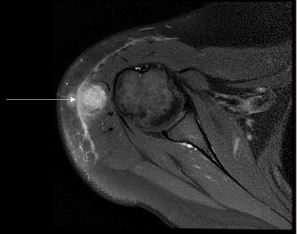Severe Case of Tuberculosis Following Vaccine Mix-Up: A Woman’s Unfortunate Experience
A woman has developed a serious case of tuberculosis, often referred to as the world’s deadliest infection, after being mistakenly administered the wrong vaccine. The incident involved a 30-year-old woman who visited a clinic in Ireland with the intention of receiving her measles, mumps, and rubella (MMR) vaccination.
Due to a mix-up by the healthcare professional, she was inadvertently given the Bacillus Calmette-Guérin (BCG) vaccine instead, which is designed to protect against tuberculosis. The BCG vaccine, typically administered to infants and young children, contains a weakened form of the Mycobacterium bovis bacteria, which causes TB. This vaccine is usually injected under the skin of the upper arm but was, in this case, injected into the muscle due to the mix-up.
The incorrect administration route allowed the bacteria to proliferate rather than provide the intended immunity, leading to an infection in her deltoid muscle. Following the injection, the woman developed a painful, oozing lesion at the site, and her battle with the infection lasted several months.
Tuberculosis, historically dubbed “consumption” during the Victorian era due to its debilitating effects on the body, continues to be a significant global health concern, claiming approximately 1.25 million lives each year. Recently, health authorities have reported a worrying resurgence of TB cases, with a notable increase of 10 percent in infections among children across Europe.
While the BCG vaccine is generally safe and complications are rare, especially when administered correctly, there are instances where adverse effects can occur. These complications may include abscesses at the injection site, particularly in immunocompromised individuals. According to a study published in the American Journal of Case Reports, complications from the BCG vaccine occurred in only 0.001 percent of cases when administered intradermally to immunocompetent patients. However, factors such as improper administration techniques can significantly heighten the risk of complications.
In this case, the woman, who had no prior medical history, sought vaccination based on recommendations. Unfortunately, she received the BCG vaccine intramuscularly in her left deltoid without any immediate recognition of the error. Within a week, she began experiencing pain, swelling, and redness at the injection site. Initially, healthcare providers suspected cellulitis—a bacterial skin infection—and prescribed a seven-day course of antibiotics. However, when her symptoms persisted, an MRI scan revealed a lesion in her arm muscle that had developed into an abscess filled with 15ml of fluid.
Recognizing Symptoms of Tuberculosis

Tuberculosis is a potentially severe illness, but with the appropriate antibiotic treatment, it can be cured. While it primarily affects the lungs, it can also impact other areas, including the bones, brain, lymph nodes, kidneys, spine, skin, and stomach. Common symptoms of pulmonary TB include:
- A persistent cough lasting more than three weeks, often producing phlegm that may be bloody
- Gradually worsening breathlessness
- Loss of appetite and unexplained weight loss
- High fever
- Night sweats
If TB affects other parts of the body, symptoms may include:
- Swollen lymph nodes
- General body aches
- Swelling in the joints
- Abdominal pain
- Dark urine
- Frequent headaches
- Nausea and vomiting
- Confusion or altered mental state
- Stiff neck
- Rashes
After thorough testing of samples extracted from the lesion, it was confirmed that the woman had contracted a TB infection, with positive results for Mycobacterium tuberculosis. Fortunately, a chest X-ray indicated that her lungs remained unaffected by the infection, and no additional lesions were detected. The patient finally began anti-TB medication two months following the erroneous vaccine administration. Remarkably, her initial treatment proved effective, leading to a full recovery, and she reported no further symptoms six months after the anti-tuberculosis treatment commenced.
In a follow-up MRI scan conducted three months post-treatment, there was a significant reduction in the size of the BCG-related abscess in her deltoid muscle.
Importance of Correct Vaccine Administration

The authors of the case report highlighted that the erroneous intramuscular administration of the BCG vaccine is an unfortunate but not uncommon error, which can lead to rare yet preventable complications, even in individuals with normal immune function. They emphasized that healthcare professionals must be vigilant to avoid confusing the BCG vaccine with the MMR vaccine, as both are administered intramuscularly.
To mitigate such errors, the authors recommend implementing comprehensive training in vaccination techniques and establishing protocols to confirm the correct vaccine and administration method before injections are performed. Such measures are crucial in preventing incidents like the one experienced by this patient.